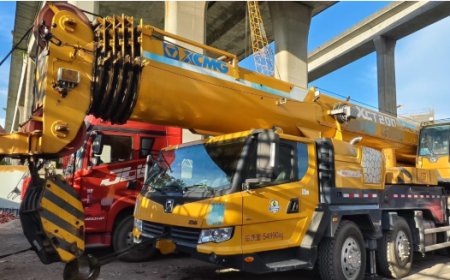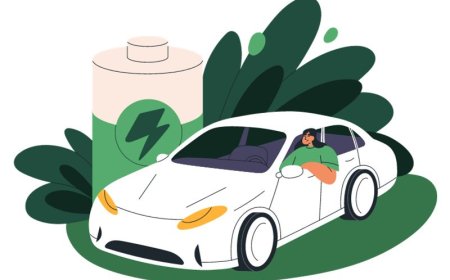Climate Change & Insurance: Why Homeowners Are Paying More
As someone who has always kept an eye on how our environment is changing, I couldnt ignore the significant rise in insurance premiums that homeowners are facing these days. The connection between climate change and the increasing cost of home insurance might not be immediately obvious, but once you start connecting the dots, its clear why premiums are going up. In this blog, Ill walk you through why climate change is causing your insurance bill to rise and how you can prepare for it.
The Link Between Climate Change and Rising Insurance Costs
Climate change is no longer just a future concern. Its happening right now, and its affecting every part of our lives, including the cost of home insurance. Extreme weather events, such as hurricanes, wildfires, and flooding, have become more frequent and severe. This increase in natural disasters directly impacts insurance companies, who are now forced to raise premiums to cover the financial risks associated with these events.
Homeowners, like myself, are seeing significant increases in their premiums because insurance companies are trying to account for the higher risk of property damage caused by climate-related events. This is especially true for homes located in areas that are vulnerable to floods, wildfires, or hurricanes.
Why Are Insurers Raising Premiums?
Insurers are in the business of managing risk, and with the escalating threats posed by climate change, their calculations are being thrown off. The cost of repairing or rebuilding homes after major weather events has risen dramatically. Here are a few reasons why insurers are increasing premiums:
1. More Frequent and Severe Weather Events
-
Hurricanes, floods, and wildfires are becoming more intense and frequent. These events cause massive damage to homes, leading to higher claims for insurance companies.
-
Insurers must increase premiums to account for the larger number of claims they are expected to pay.
2. Rising Construction Costs
-
In the aftermath of natural disasters, the cost of rebuilding homes has gone up due to the rising prices of materials and labor. Insurers factor these increased costs into premiums to ensure they can cover the full cost of rebuilding homes.
-
Rebuilding costs also include the price of more durable materials, which insurers are increasingly requiring to help mitigate the impact of future disasters.
3. Reinsurance Costs
-
Insurers often purchase reinsurance (insurance for insurance companies) to protect themselves from large-scale losses. As the frequency of natural disasters increases, the cost of reinsurance has also risen.
-
Insurers pass these costs onto homeowners in the form of higher premiums.
4. Climate Risk Modeling
-
Insurers use climate risk models to assess the potential for weather-related damages in a particular area. With the growing unpredictability of climate patterns, these models are evolving, and they often show an increased risk of catastrophic events in certain regions.
-
As a result, homes in higher-risk areas are seeing more significant premium increases.
How Climate Change Is Impacting Different Regions
Not all areas are affected equally by climate change, and this disparity is reflected in insurance rates. Heres how climate change is impacting different regions:
1. Coastal Areas
-
Coastal regions are at a heightened risk of flooding and hurricanes, two climate-related events that cause extensive damage to homes. As a result, homeowners in these areas are seeing their premiums rise, sometimes drastically.
-
In some cases, insurance companies are even pulling out of high-risk coastal areas, forcing homeowners to seek coverage through more expensive state-run programs.
2. Wildfire-Prone Areas
-
In regions prone to wildfires, like parts of California, the risk of property damage is a major factor driving up insurance rates. Wildfires have become more frequent and more destructive due to climate change, prompting insurers to raise premiums or even deny coverage in high-risk areas.
-
Homeowners in these areas need to consider ways to mitigate their risk, such as creating defensible space around their homes or investing in fire-resistant materials.
3. Flood Zones
-
While flooding has always been a risk in certain areas, the rising frequency and intensity of floods due to climate change are pushing insurance premiums higher.
-
Even homes outside of traditional flood zones may see their premiums increase as insurers adjust to the growing threat of flooding.
4. Tornado-Prone Areas
-
Tornadoes are becoming more unpredictable and intense, leading to higher premiums in regions like the Midwest. As insurers adjust to the increased risk of tornado damage, homeowners are facing higher insurance rates.
How to Prepare for Rising Home Insurance Costs
While the reality of rising home insurance premiums can be frustrating, there are steps you can take to prepare and even reduce your costs. Here are a few tips:
1. Understand Your Risk
-
Its essential to know the risks your home faces based on your location. If you live in a coastal or flood-prone area, you may need to invest in specialized insurance like flood or windstorm coverage.
-
Review your policy regularly and make sure it reflects your actual risk level.
2. Mitigate Risks
-
For homes in wildfire zones, installing fire-resistant roofing, clearing brush around your property, and using fire-resistant building materials can lower your risk and, potentially, your insurance premiums.
-
In flood-prone areas, elevating your home or adding flood barriers can reduce the likelihood of significant damage from rising waters.
3. Shop Around for Better Rates
-
Not all insurance companies calculate risks the same way, so it pays to shop around. Get quotes from multiple providers to see who offers the best rates for your level of coverage.
-
Sometimes, bundling your home insurance with other types of insurance (like auto insurance) can lead to discounts.
4. Invest in Home Improvements
-
Upgrading your homes resilience to climate-related risks can often lower your insurance premiums. For example, reinforcing your roof to withstand hurricanes or adding storm shutters can reduce your insurers risk and lower your premiums.
-
Similarly, installing a sump pump or flood barriers can reduce the risk of flooding and help lower your rates.
Climate Changes Broader Economic Impact
The rising cost of home insurance isnt just a burden for homeowners. Its also creating challenges for entire economies. Communities hit hardest by climate-related disasters are often faced with long-term economic recovery, which can slow down local economies. As insurance premiums rise, the cost of owning a home becomes unaffordable for many, pushing some people out of high-risk areas and into other regions.
This can have a ripple effect on the real estate market, especially in regions that are becoming less desirable due to climate risks. In turn, this may lead to a drop in property values, further complicating the situation for homeowners trying to recover from the impact of climate change.
The Changing Insurance Landscape: Whats Next?
As the effects of climate change continue to unfold, insurance companies will need to adapt to an increasingly unpredictable world. While premiums are likely to continue rising, there may also be innovations in the way insurance works. For instance, some companies are exploring parametric insurance, which provides payouts based on the occurrence of specific events (like a hurricane reaching a certain wind speed) rather than requiring detailed claims assessments.
In the meantime, homeowners need to remain vigilant about the risks their properties face and be proactive about mitigating them. This can help not only reduce the cost of home insurance but also protect their homes and families from the impacts of climate change.
On a lighter note, if youre feeling stressed about these insurance hikes, sometimes a visit to vape shops near me can offer a bit of relief. Whether its to relax after a long day or simply enjoy some downtime, a quick stop at the shop might just take your mind off things.
While navigating through rising insurance costs can be tough, keeping informed about your risks and how climate change is affecting your home insurance can empower you to make the right decisions for your financial future.
If you're ever looking for something to unwind, a good vape session can be a nice way to de-stress.










































